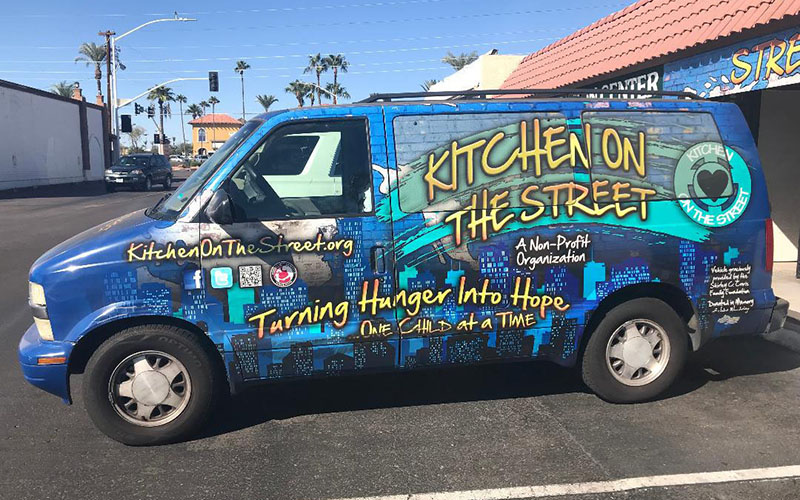PHOENIX – Kitchen on the Street works to close a gap in childhood hunger by giving students bags of nutritious food to eat over the weekend – enough to feed them until they return to school to get meals.
The nonprofit, inspired by the story of a student who had to comb through school trash to find food, provides food to more than 30 schools in the Valley.
“Bags of Hope are food backpacks that students pick up on Friday at school, carry home and consume the contents over the weekend,” said Lisa Scarpinato, chief executive and co-founder of Kitchen on the Street. “That, in conjunction with the federally funded breakfast and lunch program, allows these kids access to food seven days a week.”
Foods such as red beans, rice and fruit snacks are in the bags, with a letter explaining the nutrients and places for a family to find more food in case supplies run out.
Scarpinato started the organization in 2007 after a dinner with family friends. One friend was a new principal, and she asked about his work.
“He looked down at his dinner plate, pushed it away and let the tears fall down his face,” Scarpinato said. “He had just been in the school cafeteria and he basically watched one of his students go through the trash and pull food out she thought was acceptable to eat.”
The little girl and her sister and brother ate breakfast and lunch through the federally funded program at schools, but they did not have help for food on weekends.
“At that point, we said we have to do something,” Scarpinato said.
Other organizations also help in eliminating childhood hunger throughout the Valley, such as local food banks.
About one in six people in Arizona live with food insecurities, meaning they routinely lack access to food, said Linda Hamman, the manager for the hunger relief program of the Arizona Department of Economic Security.
That number is even higher for children, Hamman said, with one in four kids living with food insecurities.
Social workers at Maryland Elementary School in Phoenix, see hungry students all too often.
Lauren Souza said more than 50 percent of the students are low-income and live with food insecurities. Souza and fellow social worker Britney Villa-Sanchez do what they can, including distributing Bags of Hope.
“If our kids are late in the morning, we still try to give them breakfast and a snack,” Villa-Sanchez said. “Being social workers, we know that if they’re focused on what they’re going to eat, or that they haven’t eaten since last night, or lunch yesterday, they’re not going to concentrate on learning.”
Kitchen on the Street also has a food truck, used to bring food to neighborhoods and teach families about nutrition, and a restaurant, Street Cafe, staffed by people gaining new job skills and experience. Revenue from the restaurant helps to fund the programs.

Kitchen on the Street provides bags of food to school children so they can eat over the weekend, operates a van that takes food and nutrition education to neighborhoods and operates a cafe. (Photo by Ericka Arrington/Cronkite News)